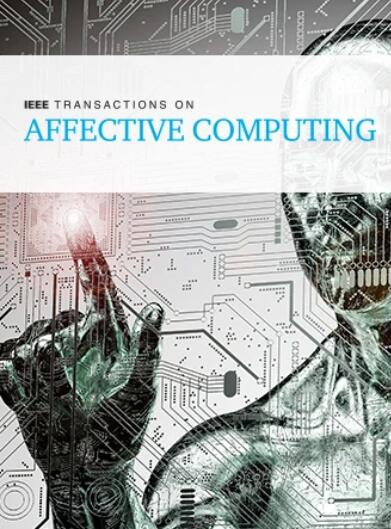THERADIA WoZ: An Ecological Corpus for Appraisal-Based Affect Research in Healthcare
IF 9.8
2区 计算机科学
Q1 COMPUTER SCIENCE, ARTIFICIAL INTELLIGENCE
引用次数: 0
Abstract
We present THERADIA WoZ, an ecological corpus designed for audiovisual research on affect in healthcare. Two groups of senior individuals, consisting of 52 healthy participants and 9 individuals with Mild Cognitive Impairment (MCI), performed Computerised Cognitive Training (CCT) exercises while receiving support from a virtual assistant, tele-operated by a human in the role of a Wizard-of-Oz (WoZ). The audiovisual expressions produced by the participants were fully transcribed, and partially annotated based on dimensions derived from recent appraisal theory models, including novelty, intrinsic pleasantness, goal conduciveness, and coping. Additionally, the annotations included 23 affective labels from the literature of achievement affects. We present the data collection, transcription, and annotation protocols, alongside a detailed analysis of the annotated dimensions and labels. Baseline methods and results for their automatic prediction are also presented. Results reveal that the dimensions of appraisal theory can be predicted, with the performance varying across different modalities. The corpus aims to serve as a valuable resource for researchers in affective computing, and is made available to both industry and academia.THERADIA WoZ:基于评价的医疗保健影响研究的生态语料库
我们提出THERADIA WoZ,一个生态语料库设计的视听研究在医疗保健的影响。两组老年人,包括52名健康参与者和9名轻度认知障碍(MCI)患者,在接受虚拟助手的支持时进行计算机化认知训练(CCT)练习,虚拟助手由一个扮演绿野仙踪(WoZ)角色的人远程操作。根据最近的评价理论模型得出的维度,包括新颖性、内在愉悦性、目标传导性和应对性,对参与者的视听表达进行了完全转录和部分注释。此外,注释还包括来自成就影响文献的23个情感标签。我们介绍了数据收集、转录和注释协议,以及对注释维度和标签的详细分析。并给出了自动预测的基线方法和结果。结果表明,评价理论的维度是可以预测的,不同模式下的绩效是不同的。语料库旨在为情感计算研究人员提供有价值的资源,并可供工业界和学术界使用。
本文章由计算机程序翻译,如有差异,请以英文原文为准。
求助全文
约1分钟内获得全文
求助全文
来源期刊

IEEE Transactions on Affective Computing
COMPUTER SCIENCE, ARTIFICIAL INTELLIGENCE-COMPUTER SCIENCE, CYBERNETICS
CiteScore
15.00
自引率
6.20%
发文量
174
期刊介绍:
The IEEE Transactions on Affective Computing is an international and interdisciplinary journal. Its primary goal is to share research findings on the development of systems capable of recognizing, interpreting, and simulating human emotions and related affective phenomena. The journal publishes original research on the underlying principles and theories that explain how and why affective factors shape human-technology interactions. It also focuses on how techniques for sensing and simulating affect can enhance our understanding of human emotions and processes. Additionally, the journal explores the design, implementation, and evaluation of systems that prioritize the consideration of affect in their usability. We also welcome surveys of existing work that provide new perspectives on the historical and future directions of this field.
 求助内容:
求助内容: 应助结果提醒方式:
应助结果提醒方式:


